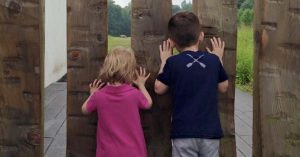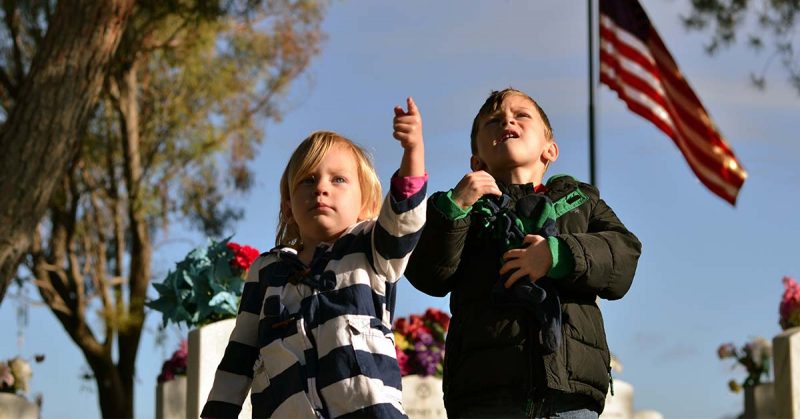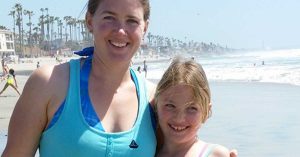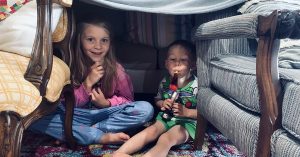Aside from never knowing the screech of a dial-up internet connection, there is one fundamental difference between our generation and our children’s: Sept. 11, 2001. The only way I know how to describe that difference is: those of us who saw the planes strike the towers in real time have an involuntary rise of goosebumps at the mention of that date.
In my nearly 11 years of parenting, I’ve found the hardest part of the entire gig to be something that was never mentioned to me — striking the delicate balance between sheltering and educating our children. I see definite appeal to leaving the veil of innocence undisturbed as long as the world allows, but I’m reminded how early our generation saw just what complex evils the world was capable of, and I think we turned out all right. Further, our parents’ generation saw hate manifest in the assassinations of President Kennedy and Martin Luther King, Jr. and lost friends in Vietnam. Further still, our grandparents — affectionately known as the Greatest Generation — overcame the Great Depression and World War II before the end of their 20s. So, while it’s true that tragedy hardens a person, over time that experience can transform into something profound — something worth passing on to the next generation so that the lessons learned and the legacy of the American spirit lives on.
They won’t ask
I saw my grandparents nearly every day of my life until about the age of 18 when one thinks she’s outgrown hanging out with her grandparents all the time. My grandpa, a retired Navy master chief, enlisted in the Navy during WWII before age 18 because he was so compelled to stand up for his country. He had an incredible and interesting career that I unfortunately learned in detail through secondhand stories after he died in 2018. I always wondered what war was like for him, even as a little girl, but my oddly mature emotional intelligence kept me from ever asking him questions outright. I didn’t want to ask a stupid question or make him talk about something that would make him sad. If I could have a day back, I think I’d just sit and listen to his stories — all of them.
Rest assured, our kids will get the gist of 9/11 as a couple pages near the end of their history books, but history textbooks aren’t widely known for being compelling reads. We know firsthand the emotions of that day and we can tell the story in a way a couple of pages never could. When the time is right, tell your story of where you were, how you felt, what happened in the days that followed. You are not only your kids’ favorite story teller, but you’ll give them a safe place to feel and ask questions.
Let it evolve
I’ve learned not to force heavy discussions, not just about 9/11. Sometimes it’s enough just to mention the date, or the Twin Towers, or the Pentagon when we drive by it. I might get follow-up questions like, “Was 9/11 the one with the planes?” or “What happened there, again?”
While we could never forget, 9/11 is as ancient history to our kids as the moon landing or the discovery of America. All of it happened before their time. I remember early in elementary school struggling to remember which World War included the bombing of Pearl Harbor. I obviously know the difference now, but there is such a vast timeline to get up to speed on, so it’s only natural to mix up facts and dates until you know better.
How often you talk about it will depend on your family and your children’s ages. It may be a daily fixture in your life geographically, physically or emotionally — you may have lost a loved one that day, you may have lost a loved one in the 20 years of combat in Afghanistan. For other families, it may be enough to discuss it over dinner each anniversary or during social studies homework when it’s on the lesson plan.

Experience it together
I’ve found the most success in passing on the stories my husband and I have from 9/11 and the years that followed through videos, newspaper clippings I saved and “field trips.” On Sept. 11, 2020, my kids came home from school, (having discussed the events of the day 19 years earlier in class), asking questions and asking to see news clips. Ever the American history enthusiast, I remember putting dinner on hold to rewatch that infamous building strike with my kids. They sat in awe, much the way I remember sitting at the age of 17.
For the first time, they asked questions about who did that, why someone would do that, if people died, and — this one got me — if Dad had to fight those bad guys, all of which I answered truthfully.
They were too young to remember stopping in Shanksville, Pennsylvania years ago on our move to California, but we walked that field together. Soon we’ll walk them by the Pentagon Memorial, and this December, we plan to show them the 9/11 Memorial in New York City. I know more questions will come, and we’ll answer them, in hopes that they grow up with a more 3D understanding of that day that came before their time, but in so many ways has shaped the world they were born into.
Watch the ripple
An oddly beautiful side effect of tragedy is the sudden bond between people who experience it together. I’ve seen this occur in our squadron family, and I saw it happen the night of Sept. 11, 2001. For a moment, however brief, we were Americans, just Americans.
I become increasingly frustrated watching the news cycle the farther we march from that day. Inevitably, that grip of the post-tragedy bond loosens. Life carries on and ushers in fresh perspectives who weren’t there when “it” happened — whatever it may be. It’s an important part of moving forward, but let us never forget that it is possible to move forward with a healthy understanding of where we came from, what we’ve pulled ourselves out of, and the stories from the past that shaped our present.





